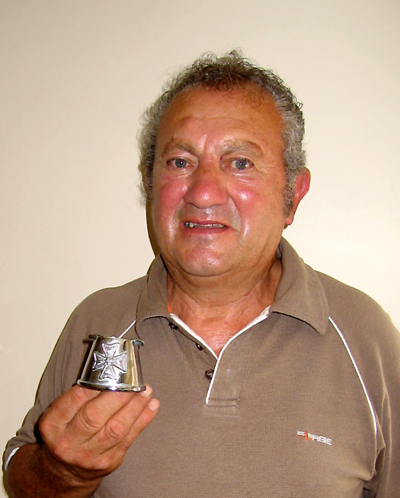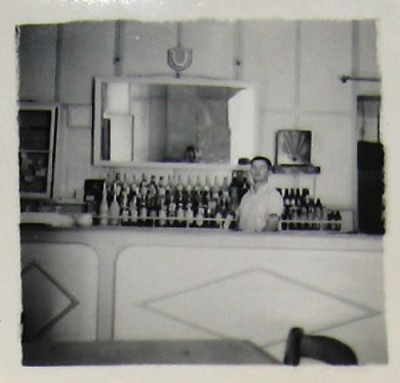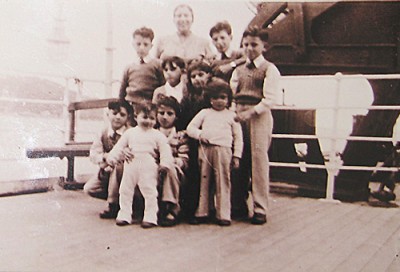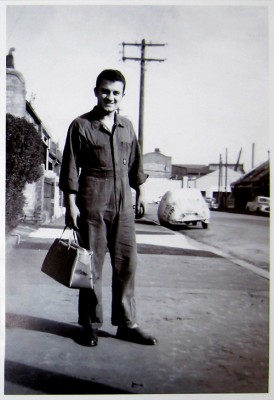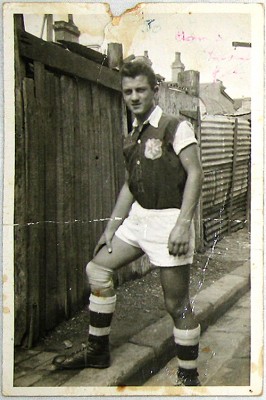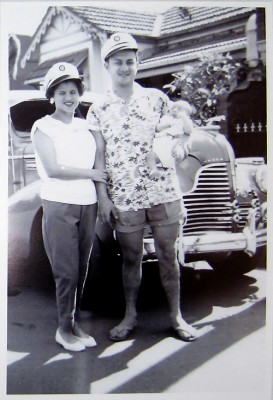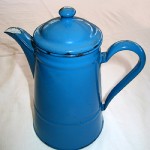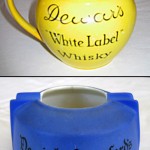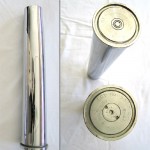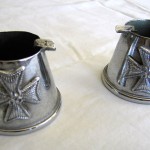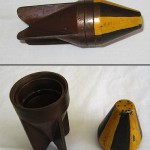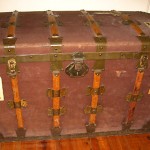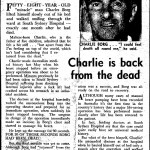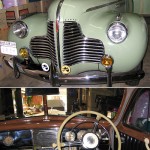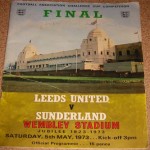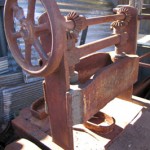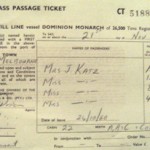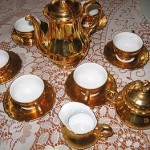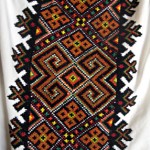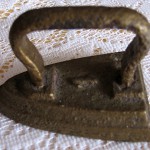Maltese
Rabat, Malta
Valetta Grand Harbour, Malta on 26 February 1950
Sydney on 1 April 1950
I lived with my parents and four siblings in Nickson St, Surry Hills in inner city Sydney. My uncle secured the house for us before we came over.
My dad worked in the spare parts department at Leyland’s car factory in Surry Hills when I was 11 years old.
Selling newspapers; builder’s labourer; TV studio soundproofer; mould polisher and chrome plater at ACI glass manufacturing, Redfern; chrome plater for cars and aircraft at Lucas Aerospace, Zetland – all in inner city Sydney.
Well, my early years in Malta, everybody would give their arm and leg to go to [the] school I did in Mdina. There was two big doors. It used to take two men on each side to open the door of the citadel to let us through the school. As you walked in the fortress, there was the armour of the Knights of St John looking at you in the hallway. During our breaks we used to play on the cannons.
Rabat is [the village] where we lived. Dad was born there in 1900. We had a café-bar on a corner in Britannia Street. Dad used to sell drinks and grog and named it The British Flag because it attracted people [who] came to Malta on holidays. In those days [the Maltese] were all British.
We used to live upstairs and I remember when I was a child we used to steal a bottle of beer and take it upstairs. Me and my brother, every now and then, we’d steal a packet of cigarettes. Not that we smoked, but as kids you have a go at anything.
Charlie Borg, Joe’s father, at The British Flag, Rabat, Malta, late 1940s
“That’s Dad in his bar. Over there they’re up at four o’clock in the morning. People used to have a drink and a cup of coffee before they go to work. We used to live upstairs and I remember when I was a child we used to steal a bottle of beer and take it upstairs.”
Dad was here in Australia in the ‘30s. There was four brothers [who came to Australia] and [Uncle] Tony was a merchant cook. He jumped ship and ended up in Australia. He went back to Malta once and talked my dad into coming to Australia just before the 1930s. During that time the [Sydney] Harbour Bridge was getting built and they worked on the bridge and the railway.
After about ten years, Dad said to his brothers [he’s] going back to Malta. He was going to get married to Mum because they used to write to each other. He worked hard when he was in Australia, made a bit of money, bought the shop in Malta.
[I was born in] 1939. My sister tells me that when the [Second World War] air raids were on, which were every night, we weren’t allowed to have any lights, only candles. You could hear the bombing miles away.
Mum gets the children to the shelters. We used to walk hand-in-hand, clutching each other. Dad would close the bar and help volunteers picking up bodies. If they found anybody alive they would bring them in the shelters and bandage them up the best way they can. None of the equipment [was] getting in because the Germans were bombing the ships. One ship out of about five used to make it. We were lucky with the food. Dad spoke English well and he was alright with the soldiers. He used pick up food from there.
A Maltese army bloke used to go around on the back of an old truck with the loudspeaker and advertise, “Please do not pick up anything off the street”, in Maltese and English. “Don’t pick up anything that looks shiny, don’t pick up any toys,” because they were booby traps. I was just about to grab a coffee thermos that was very shiny and my sister pulled me by the hair, she dragged me. I was crying in the shelter because I wanted that shiny thing. When we came out somebody’s picked it up and it blew them away.
I can still remember picking up bits and pieces of planes that came down. They were left there for years. In Malta they used to gather that sort of stuff after the war and make things out of them [to] sell and make money. They never wasted anything.
These are cartridges that were fired from Malta over German planes, from the ground cannon. We used them [like a vase to display] peacock tails. My aunty had peacocks and we used to pluck the tails out of them. They were beautiful. We had the cartridges at home for years and my dad decided to bring them with us to Australia. They’re solid brass but I chrome plated them [later].
They were mortars. They used to light them up and fire them off the ground. Just a part of the shell, they cut the top off and put a Maltese George Cross on it. And now it’s an ashtray.
These salt and pepper shakers were ready to be fired from the bazooka, the ones they hold on their shoulders. It hasn’t been used because it’s still got the top on.
There was four brothers and my sister. In the 1950s, we were getting a bit older. Dad said to Mum, “What are these children going to do when they grow up here in Malta? There’s nothing for them because Malta’s only a small country”. 1950, Dad decide to come to Australia. “There will be work there for the children, they’ll have a trade.” [Malta] was still badly in ruins.
His mum and dad were dead by then so he decide to sell the shop. My godfather broke down and cried. Over there they’re up at four o’clock in the morning, people used to come around, they’d have a drink and a cup of coffee before they go to work. It was hard for Mum. She still has her mother alive and she had nobody in Australia on her side whatsoever.
My schoolfriend said, “You know Joe, you go to the end of the world”. In those days it was six weeks on the ship. There wasn’t any planes to fly straight across.
Dad done all the paperwork. We were packed ready to come to Australia, ready to have the needles [to] make sure there is no sickness, not bringing any germs into the country. All I can remember is we had a little case we made ourselves, with a little handle on it and we packed comics, The Dandy, so we have something to read on the ship.
We had two trunks. That was one of the main ones that had Mum’s stuff in it and a bit of jewellery. The port was in Malta. Just before we boarded, my favourite aunty hired her own boat [which] took her out close to the ship.
We came on a full passage to Australia [via] the Suez Canal, Aden. It was a bit more like a first class passage. It’s the Ocean Victory. I remember a lot about the ship. It was in poor condition, a wreck. When the ship got here it never went anywhere else, it got scrapped. [It] was maintained by Turks; they were the cooks, they were the drivers, they were the handymen, they were everything. The Ocean Victory ended up with women and children mainly, hardly any men. What they used to do in those days, the husband come before, make provisions so they’ve got somewhere to live when they come over. We were lucky because we had my uncle and he got us a place at Surry Hills.
The food was terrible and they used to have a little plastic coupon for [it]. All we were eating was rice, rice, rice, rice, so my dad, being a shop owner and a good cook, he finally got about five or six men and had a bit of a conversation. They went up to the captain, my dad never stood for any rubbish. He says, “We’re going to take over the kitchen. We want you to get some proper food like spaghetti, macaroni and meat and fruit”. I think it was [at] Aden or Port Said the women and children were a bit happier because they were eating.
A lot of sickness on the boat. They never used to come out of the cabins, half of them. Actually we lost three people on the boat. People died of sickness and they tossed them overseas. They just put them in a box and threw them. I remember the carpenters making the boxes up, like coffins, just a plain box. And they used to put weight in them so that they went down.
Joe’s mother Josephine and Borg and Vassallo children en route to Australia on the Ocean Victory, February 1950. Joe Borg is standing on the left. His future wife, Annie Vasallo, is crouching at the front.
“That [photo] was taken on the ship [with] the family I married into. My wife’s father used to live near my grandmother. We used to go to school with my brother-in-law and play in the streets.”
That [photo] was taken on the ship [with] the Vassallo family I married into. We used to go to school with my brother-in-law and play in the streets. My wife’s father was already here three months before. He used to live nearby in Mtarfa where my grandmother lives. When my father-in-law was young during the [First World] war, no ships were getting in with milk or any food. So the young babies were getting shoved from one breast to another to keep them healthy. So my father-in-law was breastfed by my grandmother. In those days those sort of things happened.
We stopped at Perth. Dad got some of his friends [from the boat] and showed [them] how meat was presented in Australia. You know, underneath the glass, whereas in Malta they didn’t. Melbourne, we just walked around and realised how different the buildings was to Malta. Malta was solidly built out of limestone. There’s no bricks in Malta, there’s no tiles, there’s no fibro. There was no peak roofs, all flat roofs. We used to get up there and play soccer, and women used it for the clotheslines.
I arrived on April Fools Day at Circular Quay. We went under the bridge; Dad worked for a few years on that! [Many] women were on their knees praying because they didn’t think we were going to make it underneath because of the masts.
My two uncles that were originally in Australia and their families met us at the Circular Quay. To think I had Australian cousins! That was fantastic to see cousins I’d never seen before, especially for Dad when he hasn’t seen his brothers for so many years.
Tony got what they call ‘key money’ in those days for a house in Nickson St, Surry Hills [near central Sydney]. If you’re renting for long, a couple of years, then you’re entitled to buy it. Because Dad still had a bit of money from the shop he was able to put [down] a deposit.
Dad worked for Leyland. The car company, yeah. They were situated in Surry Hills. They used to send big boxes of spare parts from England. He used to send them to the people that’d ordered them. He spoke English well and in those days there was no advertising on the papers or anything like that. You walk in, there might be a sign outside. He stayed there for about three years. [When] they closed up and went to Waterloo, Dad said [it was] too far so he got a job at the glass factory on the corner of [South] Dowling St.
For me it was making a new country for myself. There was a lot of other families that followed on the Astoria and the Ocean Triumph and most ended up in Surry Hills, Darlinghurst, Redfern, so we all just about went to the same school at De La Salle Brothers at Surry Hills. The Brothers were cruel. Because we had a lot of friends that was a lot of difference for me.
We were playing soccer one day in the cricket field and the Aussies used to look at us. What the hell are you playing? Football. What’s football? One Brother marched us down to Redfern Oval to play rugby. A few of us got through it alright but some wouldn’t cop that shoving, so there was a big brawl. It must have been about fifty [schoolkids]. They had to call the coppers to separate us. They didn’t arrest anybody. Well we didn’t tell [our parents] and I don’t think the Fathers did either. That was the end of rugby.
The Brothers used to like whacking people with those feather dusters with the long bamboo strip, hits you on the tip of your fingers. If you move, you get more punishments. One day I was crying and crying and crying and I said a couple of bad words. So he took me in front of the board and made me eat chalk. My dad said [he’ll] sort him out. He said, “I feed them good food and you feed them chalk. I’ll come down and bash your head in if you feed my son chalk again. You can call the cops if you like”. So after that [I] just [gave up] and [I left school at] 14.
My first job was selling papers, on the streets and on the trams in those days. I used to earn about three shillings for the week, sometimes a bit more with the tips, and give Mum the three shillings I earned. She used to keep a shilling for her for food and clothing, a shilling in the bank and a shilling for me.
I never had a trade [but] was very handy with my hands. I helped a friend of ours doing concreting and building, like a builder’s labourer. I [later] worked for a company putting soundproofing for Channel 9 and Channel 7 and Channel 2, in the rooms [with] microphones. They’re like a big mattress for soundproofing fibreglass. Bugger of a job.
Joe Borg on the way to work, Nickson St, Surry Hills, Sydney, Australia, early 1960s
“That’s taken about seven o’clock in the morning going to the glass factory. I was about 22 there.
My dad got very friendly with the manager at the glass factory and got me a job there. In those days they used to make big, heavy moulds for the glass to go in, then melt the glass. I used to polish all the moulds and the manager [offered] me a better job to do chrome plating. Unknown to me there was a man who stabbed people in the back before they do their ten years’ long service leave. The glass factory was very big; there was thousands of people who used to work there. They couldn’t sack my boss because he was the top man in the plating shop but he was very nice to me and when I was six months off [long service suggested] I look for another job rather than be forced to leave.
Before I left, Dad used to drive a forklift. They dug a hole about six or seven foot deep for this big machine to go in. It was all concreted but although we were in the union they’ve put timber across the hole till the machine came. They should have had thick, metal flooring because the forklifts had heavy weights. Dad run over with a forklift and when he got to the middle, the timber gave way and he got crushed underneath the forklift. Lucky we had an overhead crane and then the ambulance took him to South Sydney Hospital.
While Dad was on the operating table his heart gave away, he died. An open heart [surgeon] massaged his heart and Dad sort of came back alive. We were there for about five or six hours, me and my brother, not knowing what to tell Mum.
We started the Melita Eagles football team. We used to play friendly games around Darlinghurst, Clovelly; in those days they were just starting to know what soccer was and we started competitions. We were pretty good. The club is still going apparently.
Joe Borg in Melita Eagles football kit, Surry Hills, Sydney, Australia, mid-late 1950s
“We started the Melita Eagles football team. We used to play friendly games around Darlinghurst, Clovelly. We were pretty good. The club is still going apparently.
We used to play billiards [at the Maltese club] in Foveaux Street, Surry Hills. Maltese like to gather up, play cards, soak up the stories. When we first came over, Australian people weren’t mixing. They used to mistake us, the Maltese people, for Italians. Italy was against us in the war! But they still had that instinct that we were Italians; they used to call us ‘dagos’ in those days. But I used to say, “Look, mate, we’re British subjects, we’re on your side you know”, and that made a lot of difference.
My car, the 1940 Buick, was bought second-hand in October 1956 and I’ve still got it. That was my first car. I was sixteen. My cousins all had Buicks in those days and my uncle was mad on Buicks. They talked Dad into letting me buy a Buick. I borrowed nothing, we paid £350. It was a lot of money. I got my licence and myself and my brother used to drive it because Dad never drive a car in his life.
Dad agreed on the car because we used to go to the [nearby eastern suburbs] beaches. We used to get the trams in those days from Cleveland Street to La Perouse, Clovelly, Coogee; it was all on the same track. We stuck to the family, never went individually. We used to pick up Annie Vassallo from Glebe. In those days there was no seatbelts so I used to have anything up to fifteen people in the car, kids and all. They used to stand on the running boards and hang onto the window.
[Annie and I married when] we were nineteen. We bought the little place at Kepos Street, Redfern for £3,900. When I was just about to get married and buy the house, Mum presented me with a thousand pounds. She said, “I’m not the sort of a person that gets my nails done, my hair cut. I saved them all for you”. Dad [also] helped me buy the place cash. With that accident he got £10,000. I’m very grateful to my family.
Annie and Joe Borg with newly-born son, Stephen, in front of 1940 Buick car outside their first home, Kepos St, Redfern, Sydney, Australia, 1960
“The only thing I had against Redfern is my car [didn’t have a] garage. We never had a garage at Surry Hills [either] but [at my next home] at West Ryde there was a carport [so] the Buick was [finally] under cover!
I think it was around about ‘63, ‘64 that we left [Redfern]. We’ve got two boys and a girl: Stephen, Glen and Joanne. We named her Joanne because my name’s Joe and my wife’s name’s Anne! The place was getting a bit small for the children so we ended up buying at West Ryde [in north-west Sydney suburbs]. There was a carport [so] the Buick was [finally] under cover!
When we first moved [it] was a bit bushy. I could see these rats! So we spoke to the neighbours and they told us they were bandicoots. They looked like rats to me because I never seen a bandicoot in my life in Surry Hills.
By then I left the glass factory and was working at Lucas Aerospace in Zetland [doing] chrome plating. That’s very high standard job because if I made a mistake and one of the planes came down I’m in trouble, the whole factory is in trouble. We used to have inspectors from the government every so often.
I built a special garage for the Buick which is 30 foot long by 15 foot wide so I can open up the doors and work on it. We [could afford] to run another car when we joined the Buick car club. I fully restored [it] with the help of my friends and won heaps of trophies.
Stephen was in England for a couple of years and he met us in Malta [in] ’85. It’s changed [but] the school was the same, the cannons were still there, the armour of the knights were still in the school hall.
One thing I can tell you, I’m glad I am a Maltese because their cooking is out of this world! Minestrones and baked macaroni and baked rice. But [Australia] is my home isn’t it? I’ve got children who are born here and we do a bit of good fishing. I used to go fishing at Circular Quay, where the Opera House is now, and there was one particular wharf I used to get some nice bream. I used to kick the buoys away and put them in before I go home. Actually my son’s a mad fisherman; [Glen’s] got a boat, we’ll go fishing this Friday night.
Interviewed by:
Andrea Fernandes, NSW Migration Heritage Centre
24 February 2009
With assistance from Stephen Borg


